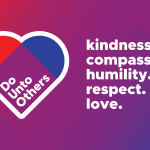Caring Relationships: Belonging
In January, I shared with many of you the importance of taking a deeper journey into what it means to be a vital congregation. PCUSA has identified 7 makes of vital congregations. Today, we begin the journey through the 7 marks, starting with Caring Relationships. For many of us here, we probably believe that this is an easy make of congregational vitality for us. I mean, isn’t this one of the reasons we come together, because we care about each other?? “Yet caring relationships in Christ challenge us to a deeper level of relationships. Christ requires true agape love; sacrificial, self-emptying, perfect love. And although we are imperfect, it is about striving to see all people the way Christ sees them; not from judgments or preconceived perceptions; it is about helping walk with others, responding to their needs, desiring their well-being. It is about walking with people in tragedy, and rejoicing in triumphs. Caring relationships of God is about allowing people to be real in their stories, without hiding or holding back, and loving every imperfect part of them. Church should be the one place where the God who already knows, encounters our honest confession and allows us to give testimony. It should be the place where conflicts are confronted, crucial conversations of forgiveness and reconciliation are had, and people of God are transformed by agape-love. Caring relationships is about vulnerability and trust. It is about meeting all people of God where they are, and sharing our One Savior, Jesus Christ. Caring relationships don’t come through hospitality and welcoming committees, they come through a carefully cultivated environment that is genuine and sincere in being the household of God (Immediate Toolkit for Vital Congregations: Developing the 7 Marks of Congregational Vitality, pg. 10).”
As we begin to go deeper into this sign of vitality, let’s talk about the importance of belonging. What does belonging mean to you? Great responses!
Brene Brown wrote a book called “The Gifts of Imperfection” where she named belonging in the following way: “Belonging is the innate human desire to be part of something larger than us. Because this yearning is so primal, we often try to acquire it by fitting in and by seeking approval, which are not only hollow substitutes for belonging, but often barriers to it. Because true belonging only happens when we present our authentic, imperfect selves to the world, our sense of belonging can never be greater than our level of self-acceptance.”
As I read through this definition, I absolutely loved it. The image of belonging to ourselves was truly powerful to me. But what does that mean? According to Brown, “belonging to ourselves means being called to stand alone—to brave the wilderness of uncertainty, vulnerability, and criticism. And with the world feeling like a political and ideological combat zone, this is remarkably tough. We seem to have forgotten that even when we’re utterly alone, we’re connect to one another by something greater than group membership, politics, and ideology—that we’re connected by love and the human spirit. No matter how separated we are by what we think and believe, we are part of the same spiritual story (Braving the Wilderness, Chapter 2).” Brown goes on to say that the research participants feel a huge spiritual disconnection and a diminishing sense of shared humanity. She continues, “over and over, participants talked about their concern that the only thing that binds us together now is a shared fear and disdain, not common humanity, shared trust, respect, or love. They reported feeling more afraid to disagree or debate with friends, colleagues, and family because of the lack of civility (Braving the Wilderness, Chapter 2).”
With naming a lack of spirituality, Brown defines spirituality the following way, “spirituality is recognizing and celebrating that we are all inextricably connected to each other by a power greater than all of us, and that our connection to that power to one another is grounded in love and compassion (Braving the Wilderness, Chapter 2).”
Connection…relationship…belonging…caring relationships matter. The Apostle Paul wrote the following words to the church in Rome. He was really instructing the people in the best ways to live as Christians. As we listen to these words, I invite us to listen to the importance of belonging and welcoming and inviting and being with one another.
Romans 12:9-18 “9 Love should be shown without pretending. Hate evil, and hold on to what is good. 10 Love each other like the members of your family. Be the best at showing honor to each other.11 Don’t hesitate to be enthusiastic—be on fire in the Spirit as you serve the Lord! 12 Be happy in your hope, stand your ground when you’re in trouble, and devote yourselves to prayer.13 Contribute to the needs of God’s people, and welcome strangers into your home. 14 Bless people who harass you—bless and don’t curse them. 15 Be happy with those who are happy, and cry with those who are crying. 16 Consider everyone as equal, and don’t think that you’re better than anyone else. Instead, associate with people who have no status. Don’t think that you’re so smart. 17 Don’t pay back anyone for their evil actions with evil actions, but show respect for what everyone else believes is good. 18 If possible, to the best of your ability, live at peace with all people.”
Live at peace with all people, including yourself. Brene Brown has developed a definition for true belonging. She says, “True belonging is the spiritual practice of believing in and belonging to yourself so deeply that you can share your most authentic self with the world and find sacredness in both being a part of something and standing alone in the wilderness. True belonging doesn’t require you to change who you are, it requires you to be who you are (Braving the Wilderness, Chapter 2).” And I would like to add, once you have reached a place of true belonging, you have connected your spirit with the Spirit of God and you are never standing alone again, but you are always standing with the one who created you into your most authentic self for this world and beyond.
So what does belonging mean to you, to me, to our congregation, and to our greater community? We can think about this in really practical terms. In your head, think of the groups, organizations, clubs, gatherings you belong to. When you think about the things you belong too, are they filled with similar people or different people? Does everyone look similar to you? Or are people of varying ages, races, life situations, socio-economic status, or sexual orientation? Now think about the church…whether it is this church, a church you grew up, a church back home, your parents church…what makes the church the same or different as the other groups you belong too? In our churches, are we loving without pretending, like members of a family? Are we honoring each other? Are we contributing to the needs of God’s people? Welcoming strangers in our homes? Are we happy with others are happy? Cry when others cry? Do we consider everyone as equals and that we aren’t better than others? Do we associate with those who have no status in our society…and most importantly, are we living at peace with all people? I don’t know about you, but I don’t know any group, club, or church that is doing all of these things well, with authenticity, and through caring relationships. I, myself, know I am failing at many of these…on a daily basis. As your pastor, I know I have some work to do in all of these areas! I believe all of us can do a much better job at developing authentic caring relationships and fostering a deeper sense of belonging for all people in our lives and in our community.
True belonging is not something we negotiate or accomplish with others; it’s a daily practice that demands integrity and authenticity. It’s a personal commitment that we carry in our hearts. The wilderness is an untamed, unpredictable place of solitude and searching. It is a place as dangerous as it is breathtaking, a place as sough after as it is feared. But it turns out to be the place of true belonging, and it’s the bravest and most sacred place you will ever stand.” ~Brene Brown
You are only free when you realize you belong no place – you belong every place – no place at all. The price is high. The reward is great. ~Maya Angelou
The four practices of true belonging require vulnerability, getting uncomfortable, learn how to be with people without sacrificing who we are and what we value.
People are hard to hate close up. Move in.
Speak truth to BS. Be Civil
Hold Hands. With Strangers
Strong Back. Soft Front. Wild Heart.
https://www.psychologytoday.com/us/blog/between-cultures/201704/belonging
http://iamatriangle.com/start-here/







